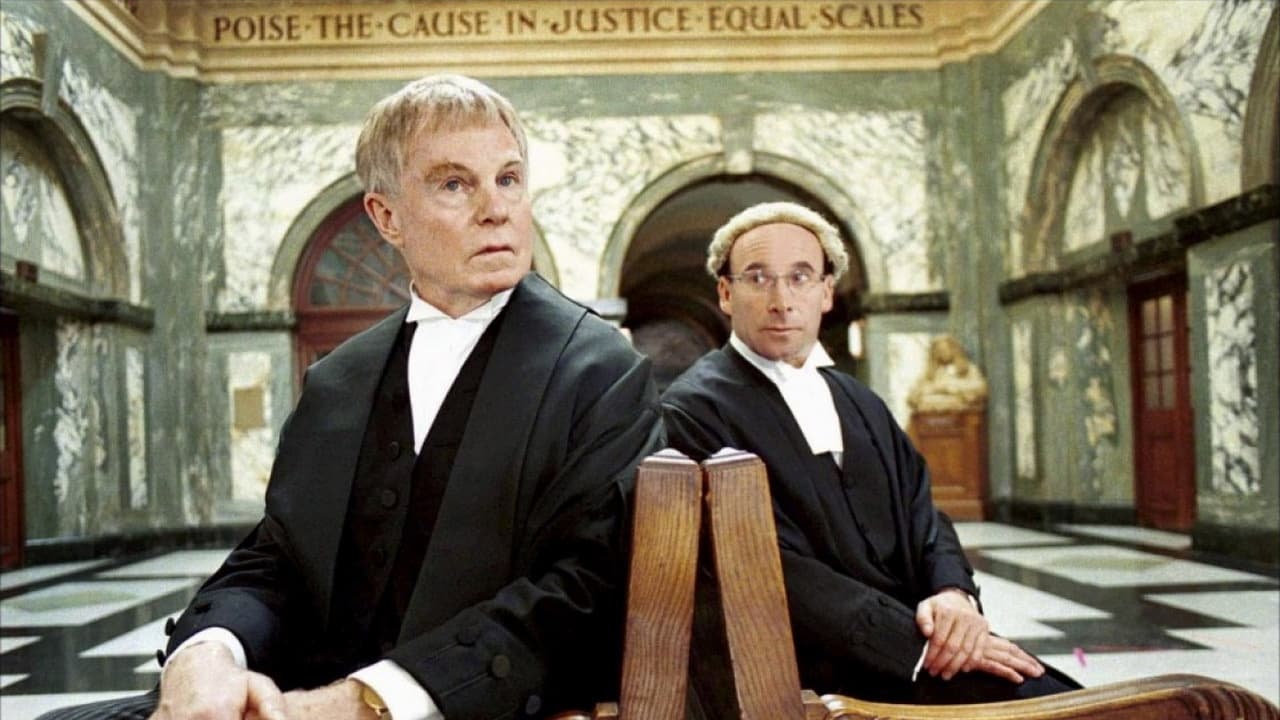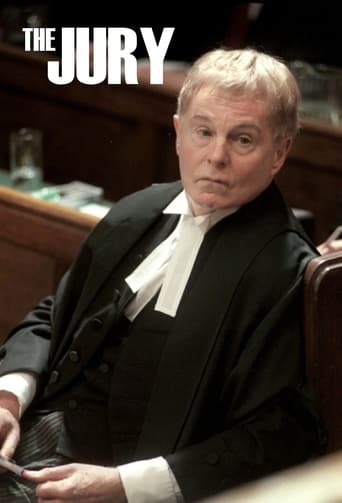SpuffyWeb
Sadly Over-hyped
Cleveronix
A different way of telling a story
WillSushyMedia
This movie was so-so. It had it's moments, but wasn't the greatest.
Raymond Sierra
The film may be flawed, but its message is not.
pawebster
This should be a textbook example of an ensemble production. Everybody is excellent, and some of them are big names, too, such as Derek Jacobi, Anthony Sher, and (though not so famous at the time) Gerard Butler, who puts in a memorable performance as a recovering alcoholic. It also maintains its momentum over six episodes, and I was always keen to see the next one.The plot has some weaknesses. The judge seems never to have explained clearly to the jury that you have to find a defendant not guilty if there is not sufficient proof of guilt. There are also inexplicable weaknesses in the evidence, such as absolutely no traces of blood on the defendant. If not, why not? What about DNA? I know this was in the early 2000s, but I would have thought it might have been mentioned. And why was there no clear medical evidence about the boy's shoulder? As for the drain, is it credible that the police, however complacent, would not have searched such an obvious location close to the canal? Also, as another reviewer has mentioned, why did the jury continually have to run the gauntlet of protesters outside the main door of the Old Bailey? Despite these glaring defects, the acting and the quality of the direction make this well worth seeing.
swanzer
A very compelling story about a young Seikh man who is charged with murdering a classmate. I enjoyed the relationships the characters formed with each other and how they were brought together for the conclusion of the story. I thoroughly enjoyed Gerry Butler's role as a young man fresh out of rehab struggling to make a new life for himself despite all his difficulties. The ensemble cast draws you into their own personal trials as well as their fight for the truth in the trial they sit for. The story keeps you guessing and even in the end, you still are not sure what is the actual truth. A great British version of the American-types of "Law and Order" and "The Practice" series.
jonathan baron
Having now seen parts of this twice, I think that what makes this really great, and gripping, is the character development and the acting. I especially liked the recovering alcoholic and Rose, but all the characters were well developed and real (except, perhaps, the judge, the lawyers, and the defendant - but this is about the JURY).I am as much against political correctness as the next person, but I don't think that was what this was about. That was part of the background, but not the story. The story was about the people.
Philby-3
This was quite an ambitious undertaking; a six part exploration of not only the dynamics of the jury room but also the effects of the criminal trial on the lives of jurors, their families, the victim's family and the accused and his family. The jury here is almost perversely diverse, with everyone from a young single black mother to a trainee priest. We follow seven of the jurors home during adjournments and realise that strains and stresses of the jury box and room aren't the half of it. One unlucky juror has a father-in law from hell who wants in on the case. Another is a recovering alcoholic who is finding it hard to stay on the straight and narrow, despite his invaluable `personal trainer' Juror Rose (Helen McCrory) is unlucky enough to be married to a control freak (she took on jury service to get away from him) and to then get friendly with the alcoholic. Juror Jeremy, a down and out businessman, is thrown by an accidental encounter with the man whose sure fire deal nearly ruined him. The trainee priest is having doubts about his vocation and the old lady he befriends finds out she is seriously ill.The courtroom scenes on the other hand run pretty smoothly (though there is a surprise witness). We have top leading counsel of course, Anthony Sher for the prosecution and Derek Jacobi for the defence, but their performances are so glossy and professional as to be almost boring. The judge is almost invisible, despite a lot of noise from the gallery.This brings me to two irritating aspects. This being a `racial' killing (Sikh boy accused of killing white schoolboy bully with ceremonial sword) there is a demonstration by both sides outside the Old Bailey every morning and afternoon. I can't believe the police would allow the jurors to be routinely intimidated in this way (though most of them did seem to have other things on their minds.) Surely there is a back door (or they could have bussed them out). Secondly, the practice here in Australia is to `sequester' the jury members ie cut them off from family and friends and anyone else who might try to nobble them after they retire to consider their verdict. We copied this practice from the English. Surely they still sequester the jury at the Old Bailey?Technical grizzles aside this was a very watchable show with some nice acting. There are weaknesses in some of the plotlines and there's rather a ham-fisted attempt to leave things up in the air at the end, but the film reveals the value of the jury as an institution even if individual jurors might be pretty quirky. To some extent majority verdicts (which we don't have in NSW) iron out some of these, though the storyline here suggests such verdicts have problems of their own. In the end the jurors do their job conscientiously to the best of their ability, despite all the distractions. Whether they are right or wrong is hardly the point; they represent humanity in the administration of justice, which would be mighty cold and austere without them.

